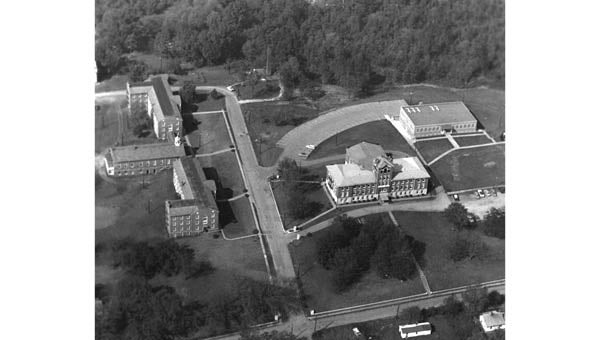Tennessee’s list of defunct colleges keeps growing
Published 3:02 pm Monday, December 12, 2022
1 of 2
|
Getting your Trinity Audio player ready...
|
By Bill Carey
Three years ago, Hiwassee College of Madisonville closed after 170 years in operation. It joined the list of private Tennessee colleges closed in recent years — a list including Tennessee Temple of Chattanooga (closed in 2015) and Lambuth University of Jackson (closed in 2011).
These closures remind us that colleges and universities don’t last forever. And although some of these former colleges were taken over by other institutions — the former site of Lambuth University is now a satellite campus of the University of Memphis — many former college campuses have left little more than a historic marker.
For instance:
Washington College. This institution was founded in 1780 by Samuel Doak, the Presbyterian clergyman who delivered the sermon to troops mustered at the Sycamore Shoals of the Watauga River before they marched to the Battle of Kings Mountain. Many important people in early Tennessee history attended Washington College. Its alumni also included Samuel Carter, a general in the Union Army during the Civil War, and William Hugh Young, a general in the Confederate Army! But Washington College decreased in stature after the Civil War, and today part of its former campus has become the Washington College Academy School of Arts and Crafts — a wonderful institution, but not a four-year college.
Burritt College was founded in Spencer in 1848 by the Church of Christ and became one of the South’s first coeducational colleges. But after the emergence of public colleges, it was hard to get students to go there and hard for them to get there (it took railroads a lot longer to penetrate the Cumberland Plateau than you might think). Burritt became a high school in 1917 and closed in 1939. However, its main building is still standing, and is used by (among others) Van Buren County and the UT Extension office. There’s even a small museum devoted to the history of Burritt College in Spencer.
Established in 1806, the University of Nashville used to sit on a hill just south of downtown Nashville. The list of people who graduated from there includes Civil War general Gideon Pillow, Central American warmonger William Walker, 1860 presidential candidate John Bell, and Sam Davis, also known as the “boy hero of the Confederacy.” However, the University of Nashville faded after the creation of Vanderbilt University in the 1870s. Today, no less than four educational institutions (one of which is Montgomery Bell Academy) trace their origins to the University of Nashville. But the institution itself is long gone.
Irving College operated in McMinnville from 1825 until the beginning of the Civil War. The campus later became a military school, then a public school, which it remains today. None of the old buildings remain, but this accounts for why there is a public school in Warren County called Irving College Elementary School.
Fairmount College was an all-female college in Monteagle that existed from 1872 until 1921. Among its alumna was a young lady from China named Soong May-ling, who later became Madame Chiang Kai-Shek.
In fact, you can’t help but notice how many of these institutions were for women. Tennessee used to have quite a few women’s colleges, such as Siena College (Memphis), Centenary Female College (Cleveland), Howard Female College (Gallatin), Boscobel College (Nashville), Chattanooga College for Young Ladies and Mary Sharp College (Winchester).
Then there was Morristown College, a historically black college in Hamblen County which played an important role in the culture of East Tennessee from 1881 until about 1960. Like many other HBCUs (such as Knoxville College and Fisk University), Morristown College struggled after public colleges and universities were integrated. The institution closed in 1995; its 52-acre campus was later auctioned off to private owners. The buildings fell into disrepair over the years — the most prominent of which burned in October 2010. Today the former campus of Morristown College is a public park called Heritage Park.
This list should make us appreciate the small private colleges and universities that remain, such as Tusculum University of Greeneville, Bryan College in Dayton, Fisk University in Nashville and Freed Hardeman University in Henderson. As their fundraising people would have me say, it’s not inevitable they have made it this far, and it’s not inevitable that they will continue to exist.
Bill Carey is the founder of Tennessee History for Kids, a non-profit organization that helps teachers cover social studies.





